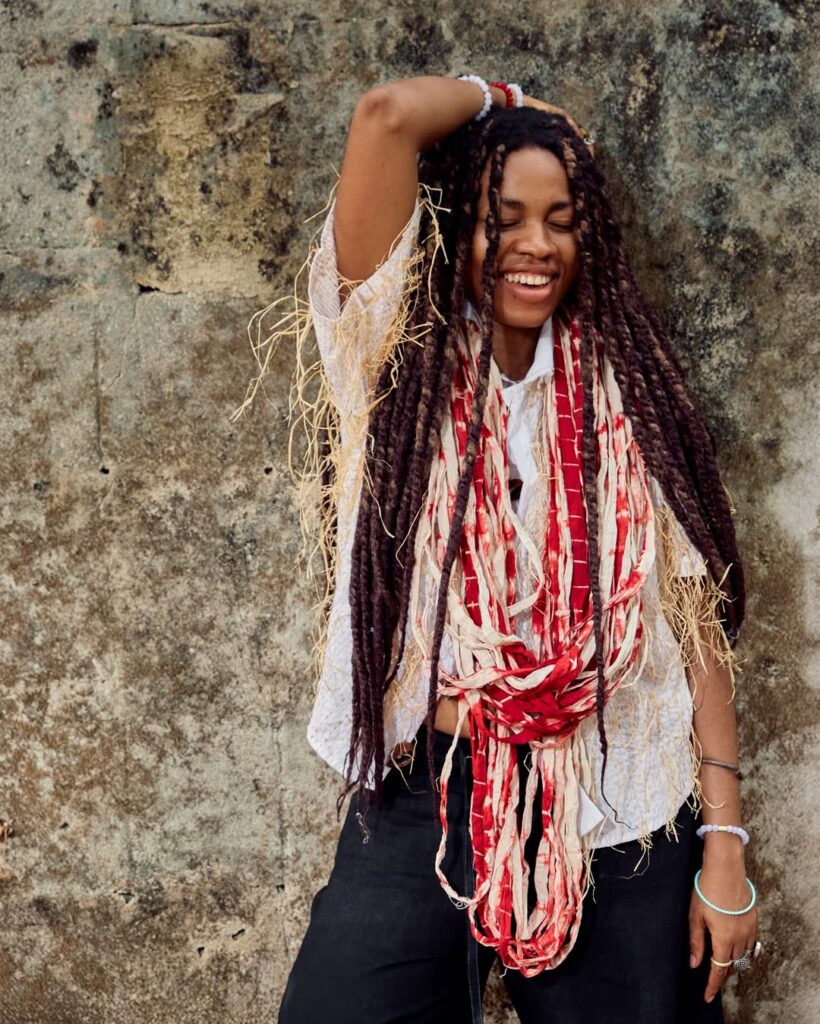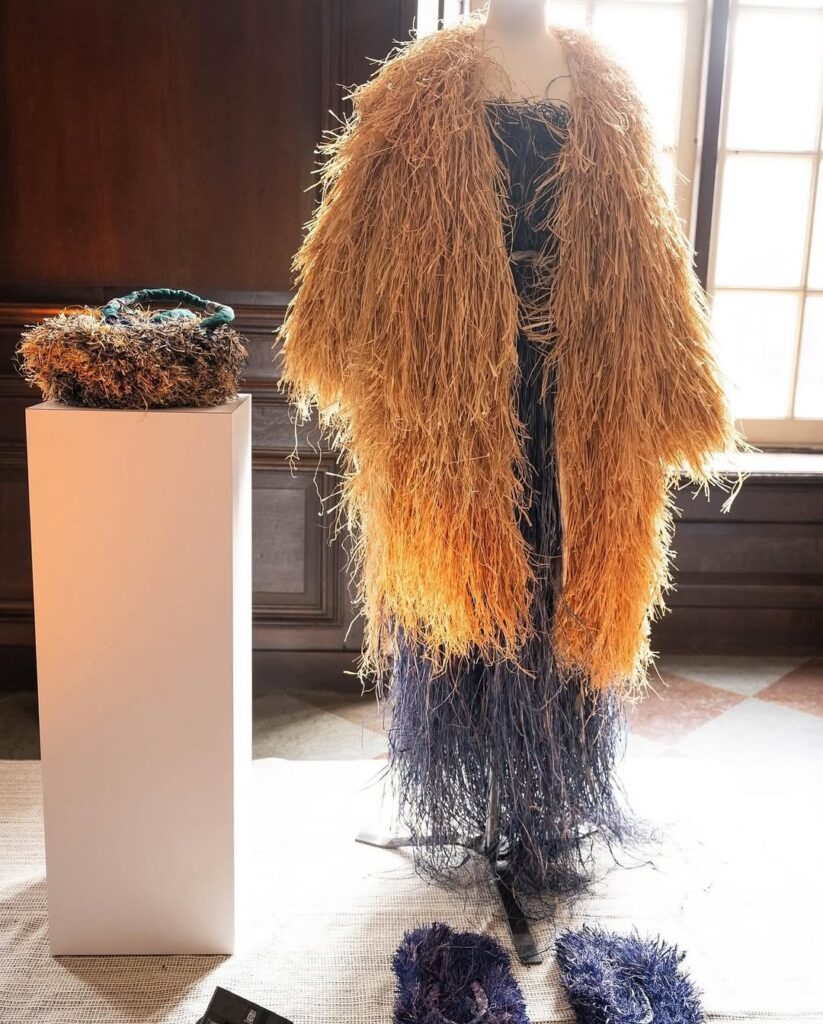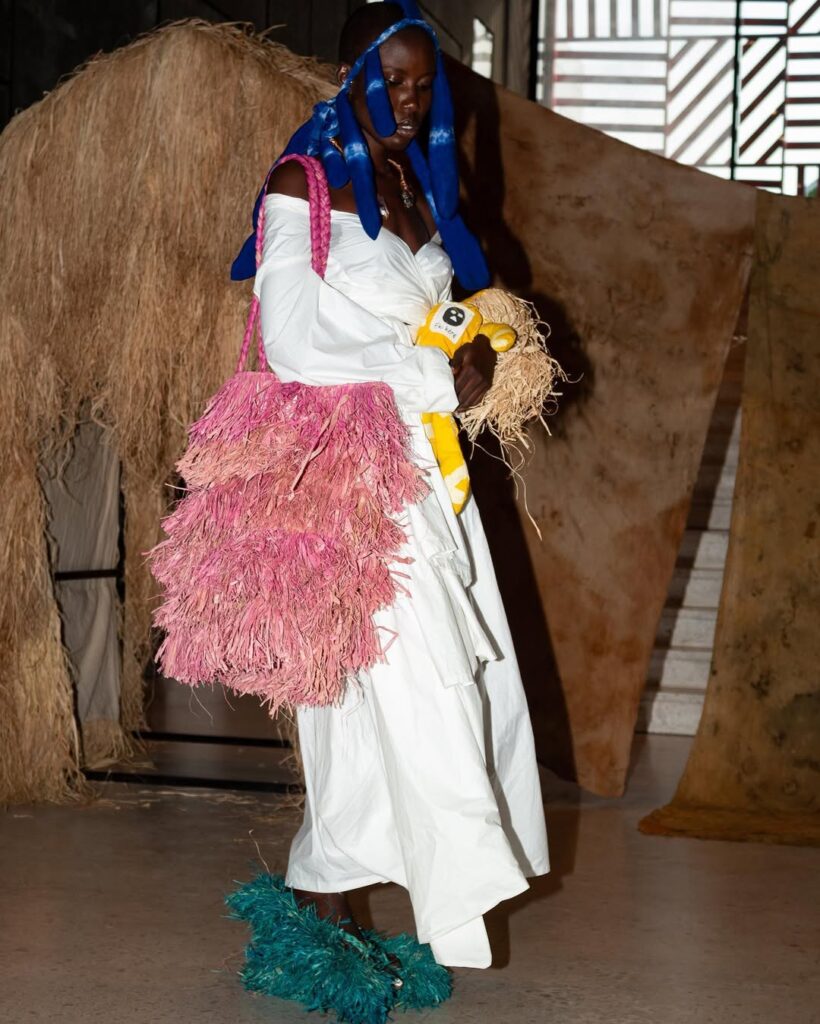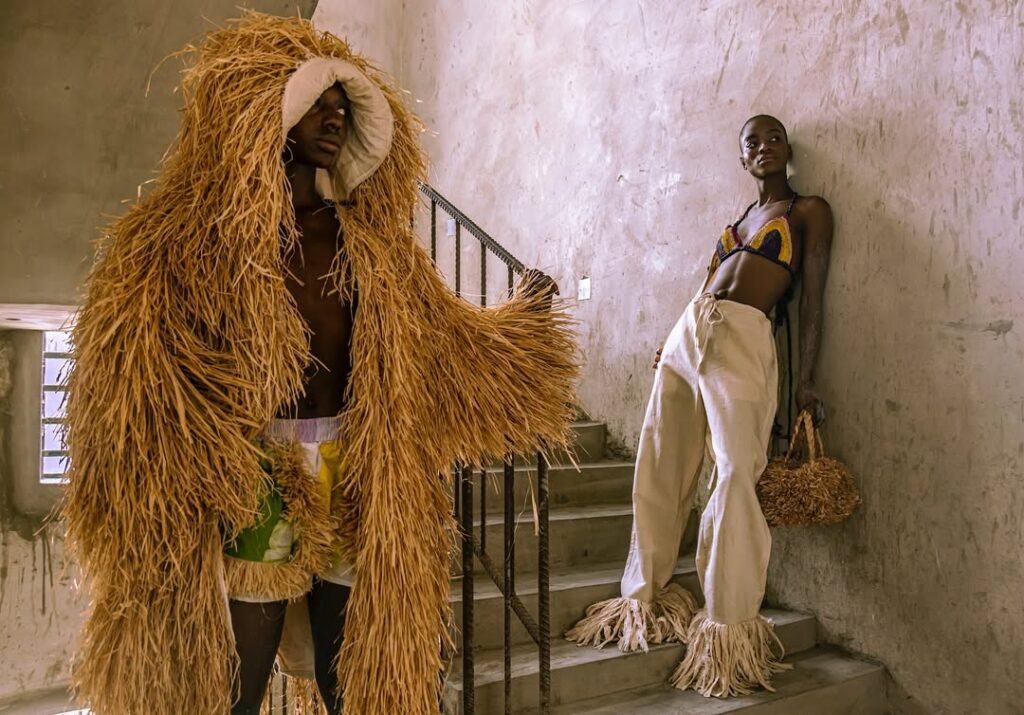
In an industry obsessed with velocity: new drops, new aesthetics, the endless sprint for the next big thing—Abasiekeme Ukanireh dares to move differently. She has become one of the most sought-after designers on the continent, renowned for her exquisite craftsmanship that blends vernacular materials and transforms the mundane into the extraordinary. As evident as it appears, Ukanireh chases truth, reinvention, and community, incorporating significant elements of storytelling that resonate culturally with both her practice and her audience.
A Story Rooted in Raffia

The brand’s story began in the wake of the pandemic in 2020. She had a passing thought about century-old clothing and called her father, who told her about raffia and its relevance before the colonial import of fabric. Originally from the raffia city of Ikot-Ekpene, the idea immediately appealed to her. It reshaped her perspective on clothing, and with her father’s help, she was able to source the raffia.
Ukanireh began experimenting—dyeing, bleaching, twisting the fiber until it came alive as a vest. Her first pieces were well-crafted. And thus, Éki Kéré was born—from instinct, identity, and inheritance. When asked why she chose this path, she says, “I wanted to create fashion that mattered, the one that came from us. That came from home.”
Keepers of a Craft Older Than Most Trends
Today, she travels often to her hometown, building relationships with the raffia artisans of Ikot-Ekpene, whom she calls masters and describes as “keepers of a craft older than most trends.” Her choice to buy directly from them is urgent. “The raffia culture was suffering, but sustainable fashion can’t thrive if the people behind it are left behind. I knew I had to go home. I had to empower my people,” she tells Guzangs.
Every transaction is a means to uplift an ecosystem—enabling local artisans to provide for their families and revitalizing an art form that once shaped the identity of an entire town centuries ago. From a restoration point of view, it’s fascinating: she is extending a supply chain that doesn’t align with Western machinations.
Secret Societies: Masquerades as Art

What gives Éki Kéré its brilliance is its embrace of masquerade aesthetics—particularly the often misunderstood masquerades of the Efik, Ibibio, and Annang people. Where many view these cultural symbols as “diabolical,” Ukanireh sees masterful craftsmanship.
“The masquerades are full of structure, movement, and story. There’s so much fashion in them,” she explains. “Fringes, textures, color play, bold silhouettes—these are elements the global fashion world chases, but we’ve had them for centuries in our culture.”
For context, the Ekpe masquerade is deeply rooted in the traditions of a secret society. The Ekpe society, also known as the Leopard Society, is a traditional fraternal organization prevalent among the Efik, Ibibio, and Ejagham peoples. Historically, it played significant roles in governance, law enforcement, and spiritual matters within these communities.
Groups like the Ekpe Society or Ogboni govern these masquerade traditions. These societies are secretive, hierarchical, and powerful—often holding roles in traditional law enforcement or judgment. Because outsiders don’t know what happens behind closed doors, it breeds fear.
But the designer views the masquerade as art. “I don’t want our culture to disappear,” she says. “We need to draw inspiration from the depth of our people—and that includes masquerades. We need to wear our story.”
Éki Kéré’s Brand Aesthetic and Looks

The silhouettes of Éki Kéré combine textiles with raffia to create a cohesive story. It’s a fusion of the past and the present, where every piece offers a wearable narrative—think raffia-inspired trench coats, two-pieces, skirts, and blouses. Over the years, the designer has put out nine collections. Her most recent, titled Spread Love Everywhere, features designs inspired by paradise, but from an African perspective. She envisions fashion as a living force—one that connects rather than divides.
“They say it’s in the rhythm, it’s in our spirit, but I call it LOVE.”
It was also a chance to embrace a Bohemian chic aesthetic, including vibrant color palettes. The looks included a pink raffia crop top, dyed textiles, and a raffia-inspired bridal look with a veil. What gives Éki Kéré its charm is the reinvention of the ordinary. Ukanireh makes accessories like bags, footwear, headpieces, and jewelry crafted from raffia and other sustainable materials. These pieces tell stories that are deeply traditional and celebrate African perspectives on fashion.
Her vision for Éki Kéré is clear: she wants the brand to be respected globally—not only for its aesthetic appeal, but for the craftsmanship, cultural depth, and quality it represents. “I want these artisans to see themselves reflected in high fashion—not in diluted references, but in full, glorious representation. Our traditions are not mistakes. The masquerade is not evil—it is genius,” she says.